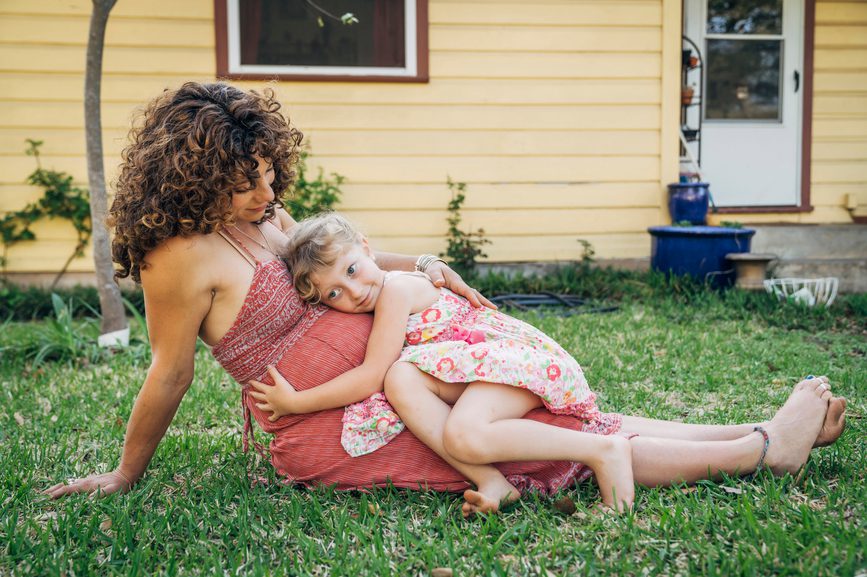What if I told you that making space for your child’s tears could be the most powerful tool in your parenting toolkit?
What if I told you that mad is sad’s bodyguard?
What if I told you it’s NOT your job to keep your child happy?
What if I told you that your child’s anger and aggression may be masking their tears of sadness, disappointment, and frustration?
In a world where we often strive to keep our kids happy, the idea that tears might be beneficial can feel counterintuitive.
So. let’s dig a little deeper. Because, if we can understand why it’s essential that tears are not just about sadness—they are about release, healing, and emotional growth—we can transform our parenting and open the doorway to emotional maturation.
The Journey of Surrender in Parenting
Parenting comes with a set of expectations.
We imagine smooth transitions.
Joyful moments.
And a sense of control over how we guide our children.
But what happens when reality doesn’t match those expectations?
When things don’t go as planned—as they won’t—it’s easy to feel like we’re failing.
The truth, I’ve learned, is that parenting is less about trying to control our kids and more about reframing our perspectives, checking our expectations are realistic and regulating our own emotions.
It’s about surrendering to the realities of the journey.
Surrender in this context isn’t about giving up or waving the white flag, it means accepting what is—both in ourselves and in our children. It’s about letting go of the need to fix every problem and instead, embracing the messiness of growing up.
One profound aspect of surrender is learning to accept and even welcome our children’s tears.
Tears are not a sign that something is wrong; they’re a natural and necessary part of emotional processing and maturation. As parents, our role is not to prevent tears but to create a safe space where tears can flow freely.
“There is nothing like the force of an immature child to test the maturity level in an adult.”
Dr. Deborah MacNamara
Why Tears Are Essential in Parenting
When we realise that our children’s tears don’t always need to be stopped, it creates a powerful shift in our approach.
I vividly remember that moment of relief myself—understanding that I wasn’t failing because I couldn’t make everything okay—couldn’t fix the broken toy, or find the lost acorn. It was freeing to know that I didn’t have to turn myself inside out trying to solve unsolvable problems.
What I could do, though, was something much simpler—yet profoundly important. I could show up for my child and hold space for his tears.
Making space for our children’s emotional expression is a problem that’s actually within our reach to solve, even if it isn’t always easy.
Tears are a crucial way for children to release the stress, tension, and frustration that come with navigating a big, overwhelming world. When we allow our children to cry, we’re giving them the chance to fully process their emotions and mature. Our children can’t reach emotional maturity if they’ve been taught to stuff their emotions down rather than feel them.
This understanding is especially important when it comes to boys. Society pushes boys to suppress vulnerable emotions, often steering them towards anger instead—a response deemed more socially acceptable.
But as Dr. Gordon Neufeld teaches, the most powerful way to release and heal frustration is through tears of sadness. When children accept the futility of the things they cannot change, sadness comes and tears fall…and then they can move on.
If we stifle those tears, futility isn’t accepted, frustration builds and eventually may manifest as aggression.
By supporting our kids through their tears, we help them build the emotional resilience and maturity they need to thrive.

Building the Capacity to Hold Space for Emotions
Holding space for our children’s emotions, especially their tears, means that we need to confront our own discomfort with vulnerability.
Given that many of us grew up in families where emotions like sadness were discouraged, it can feel challenging when we start disrupting generational patterns.
Suppressing “bad” feelings has been normalised in our culture…so it takes time to peel those layers back and rewrite a new narrative—a narrative where there are no “good” and “bad” feelings, there are just feelings and all feelings are valid.
So, start small.
Begin by noticing what sensations arise in your body when your child is upset.
- Do you feel tension, anxiety, or a need to immediately fix the situation?
- Do you find it difficult to stay present when your child is crying?
- Do you feel the urge to distract them or stop the tears?
By becoming aware of these patterns, you can begin to change them. Instead of reacting, pause and allow yourself to sit with those feelings.
Resist the urge to “fix” the problem (as a 10/10 “fixer” I feel you here if this is you too, leave the broken toy, and sit with the tears).
Over time, your capacity to hold space for your child’s emotions will grow.
“Between stimulus and response, there is a space. In that space is our power to choose our response. In our response lies our growth and our freedom.”
Viktor Frankl
Surrender isn’t a dirty word
Parenting is an emotionally demanding journey, and it’s rare to not feel overwhelmed at times!
What I’ve learned is that parenting is so much more about us than it is about our kids. Our kids aren’t broken—growing up is messy—meltdowns are normal, disappointment is inevitable, frustration is common, tears are ok.
Your job is not to make your child happy all the time!
So, let go of high expectations and take baby steps.
Remind yourself that self-care isn’t a luxury; it’s a necessity.
But it looks a whole lot different when you become a parent, especially when your kids are little. So whether it’s enjoying one warm cuppa just for yourself, making sure you always have water with you, taking a daily walk, or simply taking a few moments each day to breathe deeply, these small acts of self-care can make a big difference.
As my friend Pinky McKay, IBCLC, says, surrender isn’t a dirty word.
Surrendering to the realities of parenting, including the messiness of big emotions, is one of the most powerful things you can do for your child. Accepting that the journey to emotional maturity means our children need to feel their emotions is countercultural in a society that wants to push emotions down.
By allowing tears to flow—which can feel triggering so lean in, get curious, don’t suppress—you’re helping your child build the emotional resilience they need to navigate life and you’re reparenting your own inner child along the way.


Comments